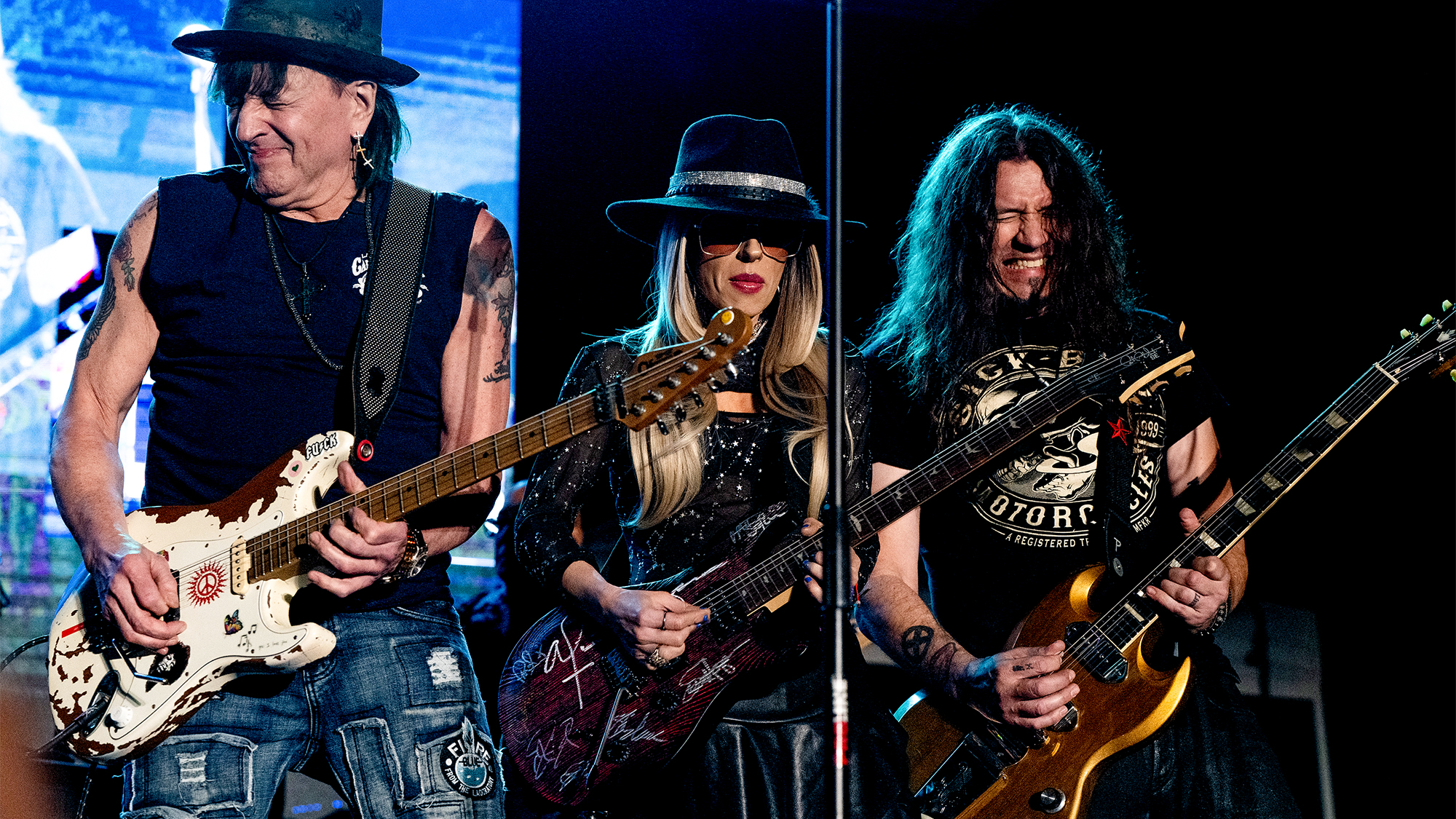Watch Lightnin’ Hopkins Play “the Best Blues Performance Ever”
Remembering the influential Texas bluesman born 110 years ago today with this archive gem featuring quotes from Johnny Winter, Billy Gibbons and more.

"I had the one thing you need to be a blues singer," Lightnin' used to say. "I was born with the blues."
The songs he created – "barrelhouse," he called them – were as sorrowful as a cottonfield holler and as earthy as the Texas bottomlands that swallowed his sweat.
"You know the blues come out of the field, baby," Lightnin' said. "That's when you bend down, pickin' that cotton, and sing, 'Oh, Lord, please help me.'"
Scars on his hands and ankles testified to stints on the chain gang and long days of driving mules and chopping cotton. But Lightnin' was indomitable, and, like Lead Belly and Muddy Waters and other great blues guitar players, he played his way to better circumstances, parlaying his anger and pain into tough, deeply felt music.
"The blues is a lot like church," Hopkins explained. "When a preacher's up there preachin' the Bible, he's honest to God trying to get you to understand these things. Well, singing the blues is the same thing."
Sage, scoundrel and natural-born storyteller, Sam "Lightnin'" Hopkins had a genius for improvised poetry, creating new verses or entire songs as the spirit moved him. He could sing about hairstyles, being broke, how his car was doing, goings-on in the club where he was performing, or the way things used to be. He damn near sang "Po' Sam" into an everyman of the blues.
Lightnin' was a supremely confident guitarist, keeping time with his left leg while swinging hard or traveling downhome. He often played a Gibson J-50 outfitted with a DeArmond soundhole pickup, and he also performed and recorded with a small Harmony flat-top and a Fender Stratocaster.
All the latest guitar news, interviews, lessons, reviews, deals and more, direct to your inbox!
One of the most distinctive elements of the Lightnin' sound is that turnaround in E
Billy Gibbons
Resting his pinkie and ring finger on the face of his guitar, Lightnin' played bass and rhythm with his thumbpick while plucking solos with his bare index finger. He thrived on first-position shuffles, especially in the key of E with the fat A7 chord with the high G.
"One of the most distinctive elements of the Lightnin' sound is that turnaround in E," observes ZZ Top's Billy Gibbons. "It's a signature lick that he did in just about every song he played. He'd come down from the B chord and roll across the top three strings in the last two bars.
“He'd pull the pick off those strings to get kind of a staccato effect, first hitting the little open-E string and then the 3rd fret on the B string and then the 4th fret of the G string. He would then resolve on the V chord after doing this roll. It's a way to immediately identify a Lightnin' Hopkins tune."
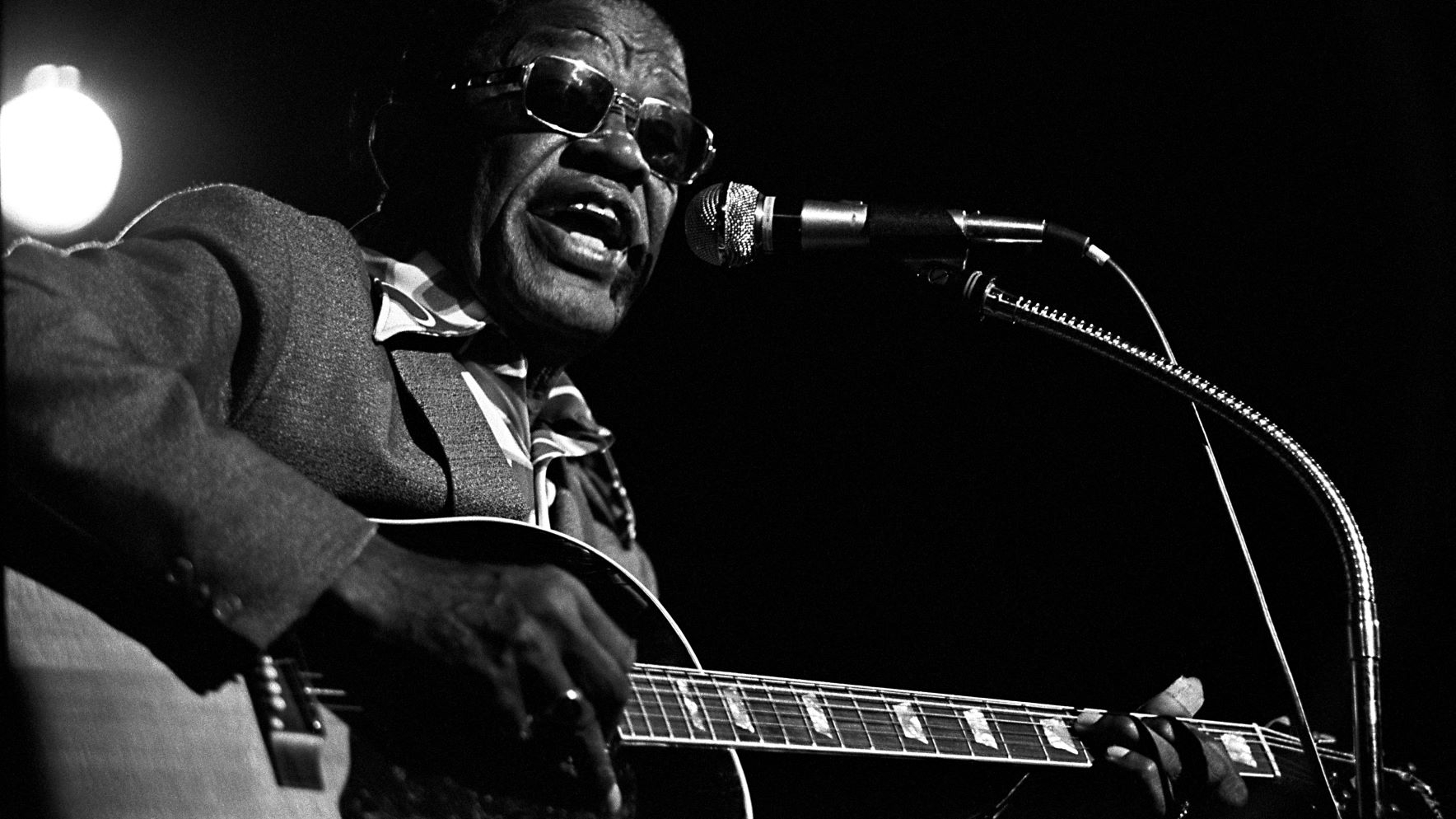
"Lightnin' change when Lightnin' want to change"
To accompany Hopkins meant doing things his way, as Gibbons quickly learned: "We were playing a traditional blues and we all went to the second change, but Lightnin' was still in the first change. He stopped and looked at us. Our bass player said, 'Well, Lightnin', that's where the second change is supposed to be, isn't it?'
“Lightnin' looked back and said, 'Lightnin' change when Lightnin' want to change.' And we knew – don't do that no more!"
"You had to know and feel Lightnin' and follow him," seconds Johnny Winter. "I guess he played a lot by himself, and he didn't worry about changes. It didn't hurt a damn thing, either. Lightnin' might not change on time all the time, but he was technically a damn good guitar player when he wanted to be.
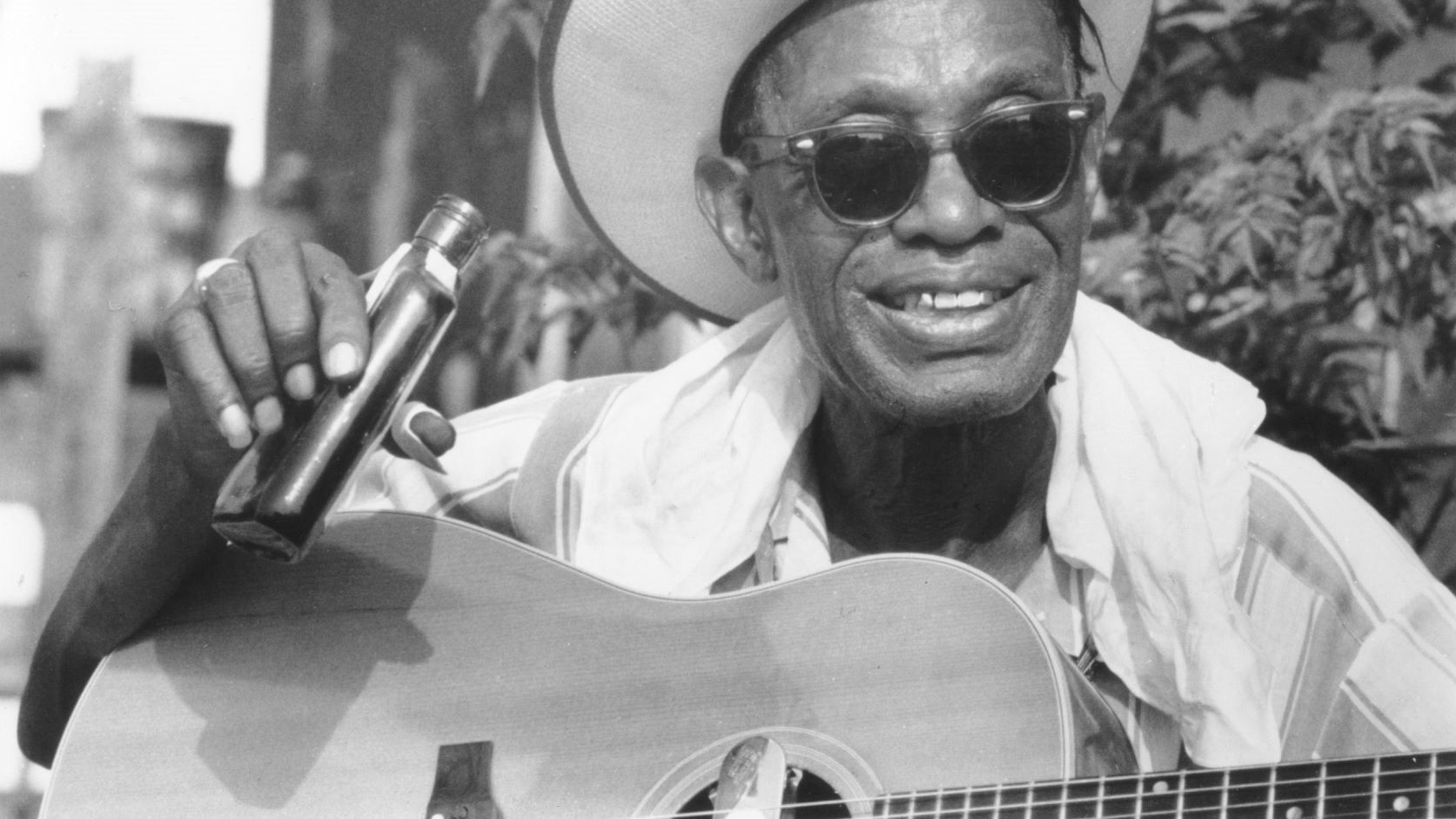
“He could play his butt off, and he was always his own man. A long time ago Lightnin' was playing a local bar in Houston, and one of the frats came up and said, 'Do you mind playing something by John Lee Hooker?' And he said, 'I am Lightnin' Hopkins. I don't play nothin' else.'"
Even while covering well-known songs like "Trouble in Mind" and "When the Saints Go Marching In," Lightnin' inevitably swerved the arrangement to suit himself. "When I play a guitar," he said in The Blues According to Lightnin' Hopkins, "I play from my heart and soul and I play my own, own music."
Lightnin' might not change on time all the time, but he was technically a damn good guitar player when he wanted to be
Johnny Winter
Hopkins was born in the heart of East Texas Piney Woods country on March 15, 1912. "My family, we come up in Leona County," he told Sam Charters during a 1964 Prestige session. "It's just a little old country where they farm and raise cotton and corn and peas and peanuts, things like that. So that's where I grew up to know myself – back out from Centerville about 12 miles back in the country."
Hopkins's grandfather was a slave who hung himself. His father, a hard-drinking gambler who'd done time for murder, was slain in an argument when Lightnin' was three. Sam's older brother John Henry fled the area soon afterward, leaving his mother on her own to raise Alice, Joel, A.B. and Sam.
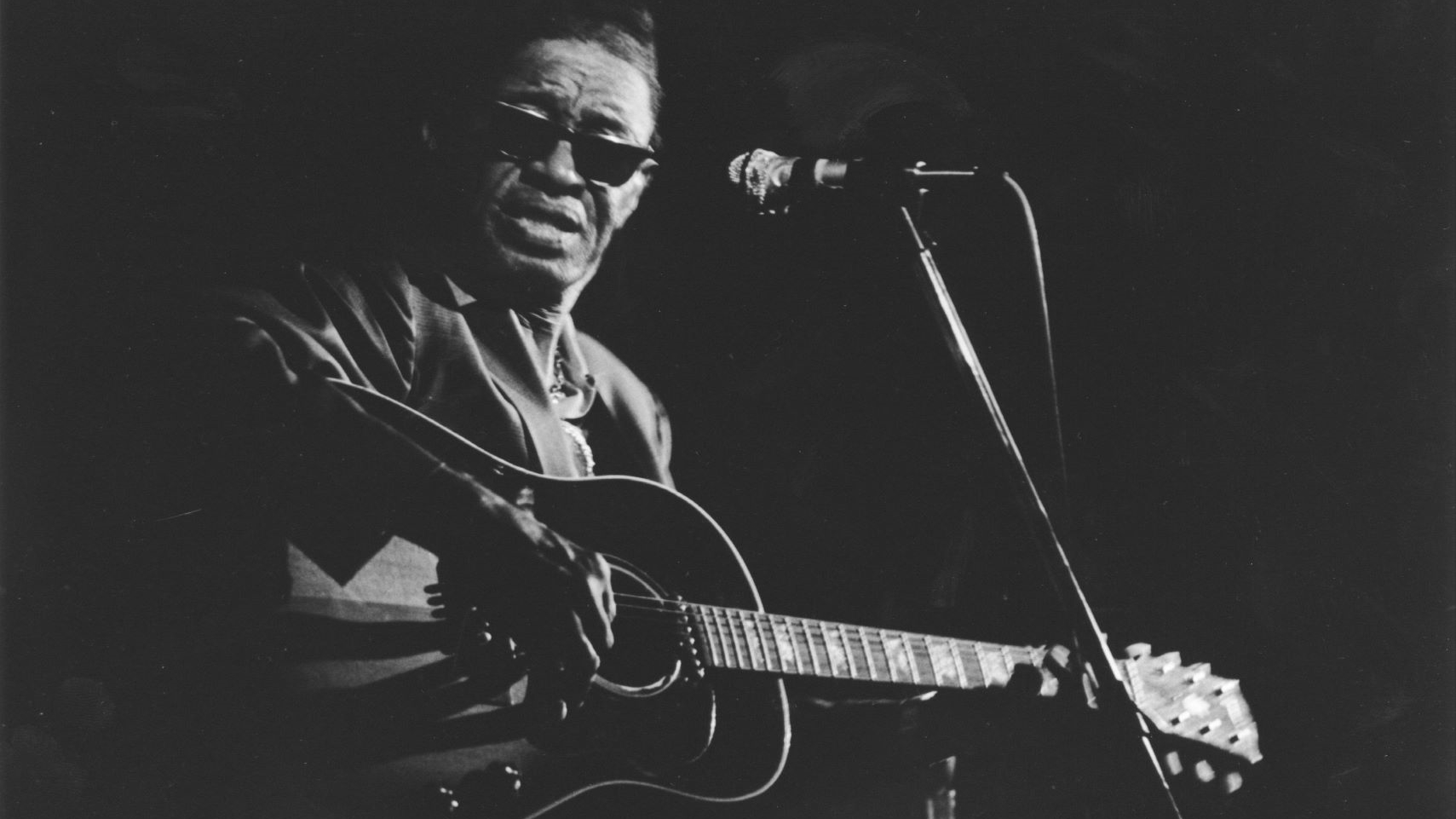
Before he was big enough to work in the fields, Hopkins was drawn to music. "I heard my brother playing a guitar," he told Charters.
"It was the first one I ever seen. He wouldn't let me play his guitar. I wanted to play it, so at last one day they come in and caught me with the guitar 'cause I couldn't hang it back up – see, I had to get in a chair to get it down.
“So he caught me fair. He said, 'Boy, I done told you – don't fool with that guitar.' He says, 'Can you play this guitar?' I say, 'Yeah, I can play it some.' He said, 'Well, go ahead and let's see what you can do.'
I got me a guitar of my own when I got to be eight years old
Lightnin’ Hopkins
“I went ahead and played him a little tune, and he liked it. So he said, 'Yeah, he can play some. Where you learn that from?' I said, 'Well, I just learned it.' So I went ahead and made me a guitar.
“I got me a cigar box, I cut me a round hole in the middle of it, take me a little piece of plank, nailed it onto that cigar box, and I got me some screen wire and I made me a bridge back there and raised it up high enough that it would sound inside that little box, and I got me a tune out of it. I kept my tune, and I played from then on. So I got me a guitar of my own when I got to be eight years old."
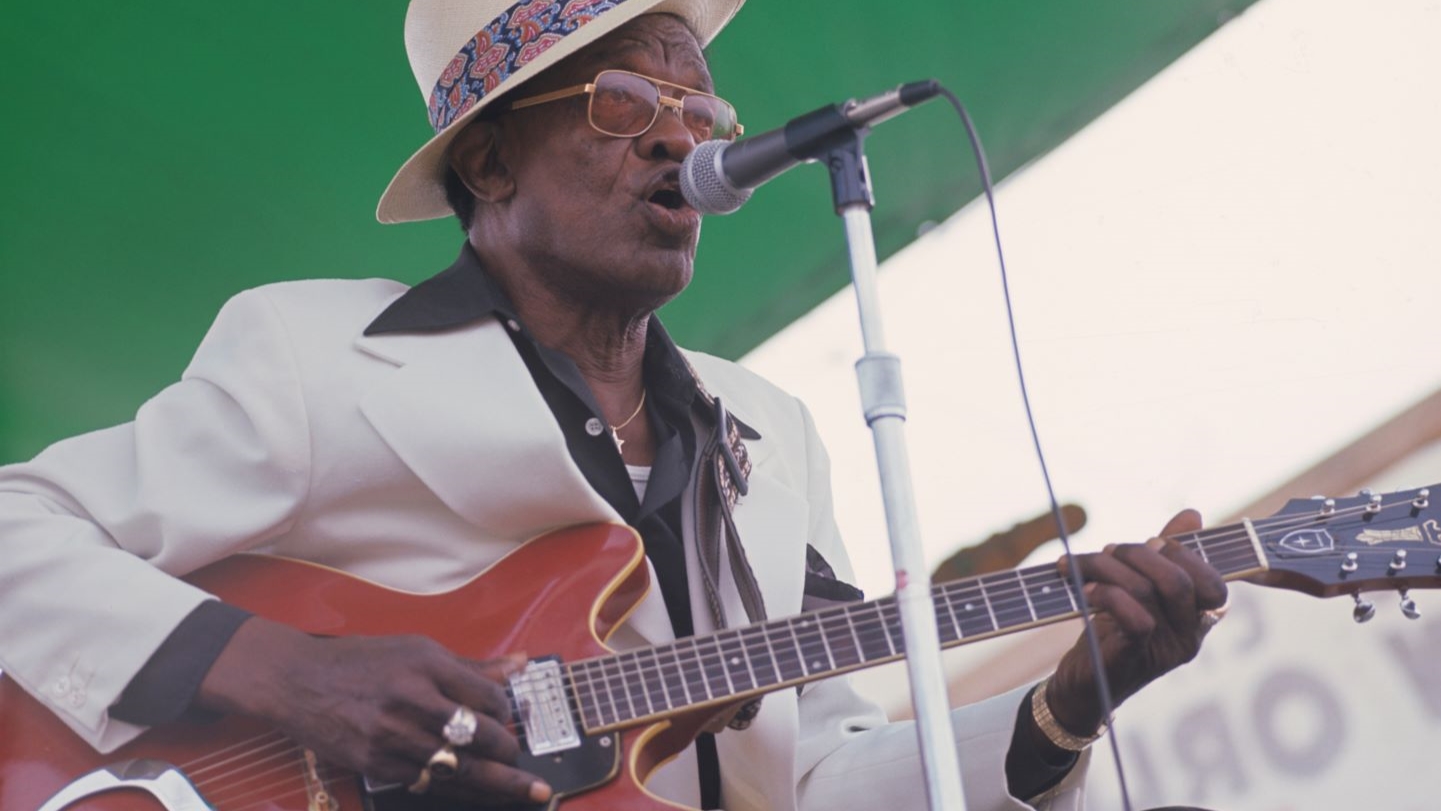
Sam toted his guitar to a Baptist church social in nearby Buffalo, where Blind Lemon Jefferson had him hoisted to the hood of a truck so they could perform together. "Boy," the great bluesman predicted, "you keep that up, you gonna be a good guitar player."
Albert Holly, an old blues player who came around to court his mama, inspired Hopkins to sing. Sam played leads alongside his brothers and sister in the Hopkins Band and gathered with them around the organ to sing "them good old Christian songs."
Boy, you keep that up, you gonna be a good guitar player
Blind Lemon Jefferson
During his teens Hopkins played with a fiddler, serenading and passing the hat. "When I got good, I went to find the places where they'd barrelhouse at," Hopkins said. "I didn't know – I just had to wander up on them places around Jewitt, Buffalo, Crockett. They had little old joints for Saturday nights, you know."
In 1927 Hopkins began playing dances and jukes around the area with his cousin, blues singer Texas Alexander, who'd just done his first session with Lonnie Johnson on acoustic guitar.
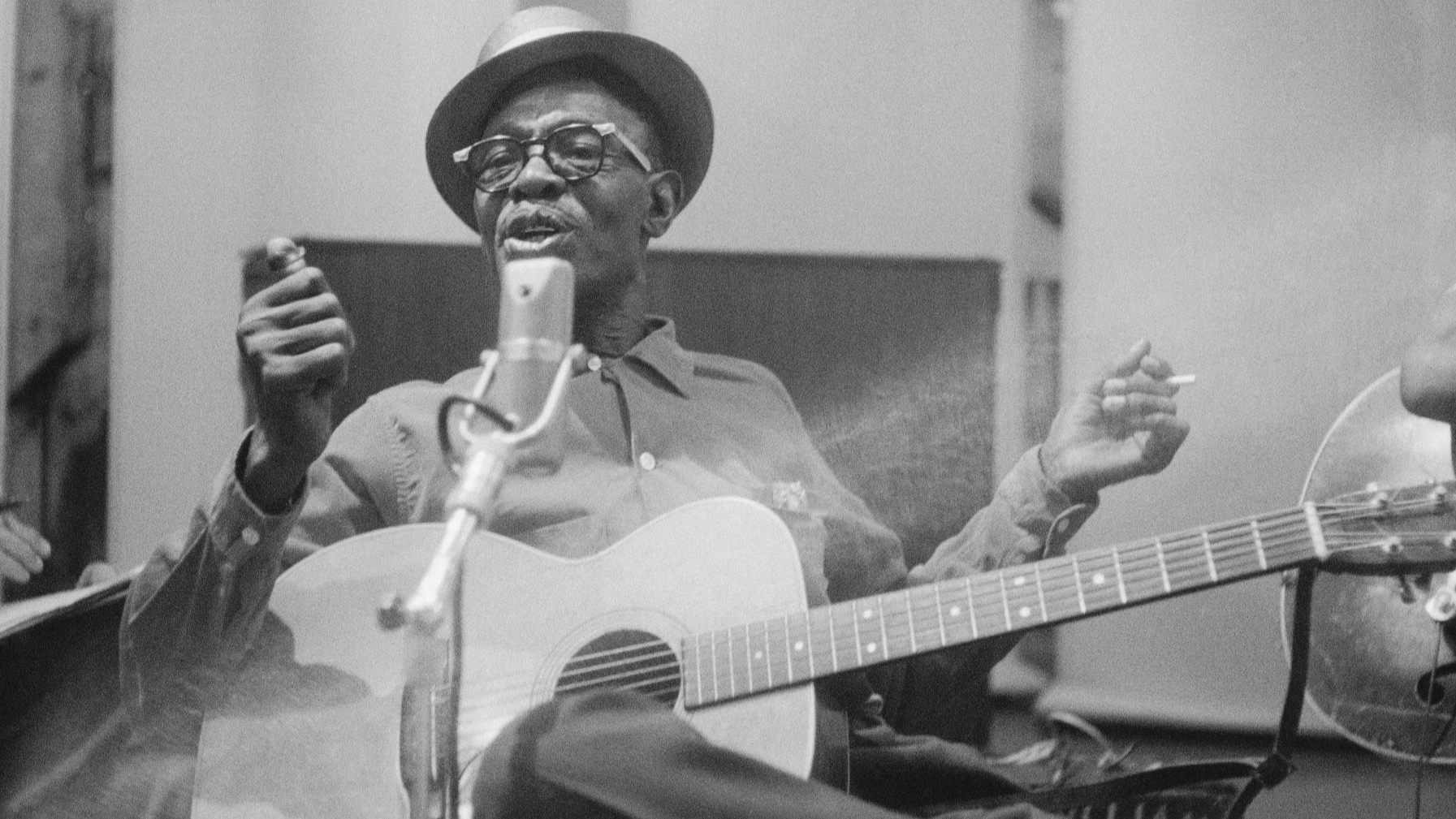
"It was hard times"
By day Sam worked the fields, chopping cotton and driving a mule. "It was hard times," he told Charters. "I was trying to take care of my wife, me and my mother. Six bits a day – and that was top price.
“I swear, I would come in in the evening, and it looked like I'd be so weak till my knees be cluckin' like a wagon wheel, man. I'd go to bed, and I'd say, 'Baby, I just can't continue like that.' Look like no sooner than I go to bed and I'm ready to go catch that mule again."
I had to calm down. Man, that ball and chain ain't no good for no man
Lightnin’ Hopkins
The hard-drinking Hopkins got into fights that landed him on the chain gang. "I had to calm down. Man, that ball and chain ain't no good for no man. From the '20s up until the '30s I was doing that. Getting cooped up and whomped around pretty good. Somehow or another, I'd always be lucky and managed to get out."
He rode the rails and stayed in hobo camps: "I had some hard days travelin', but after I stopped in places and they found out I played that guitar like I do, they'd warm me up, feed me, and make me a big sack of food and tell me I can make it."
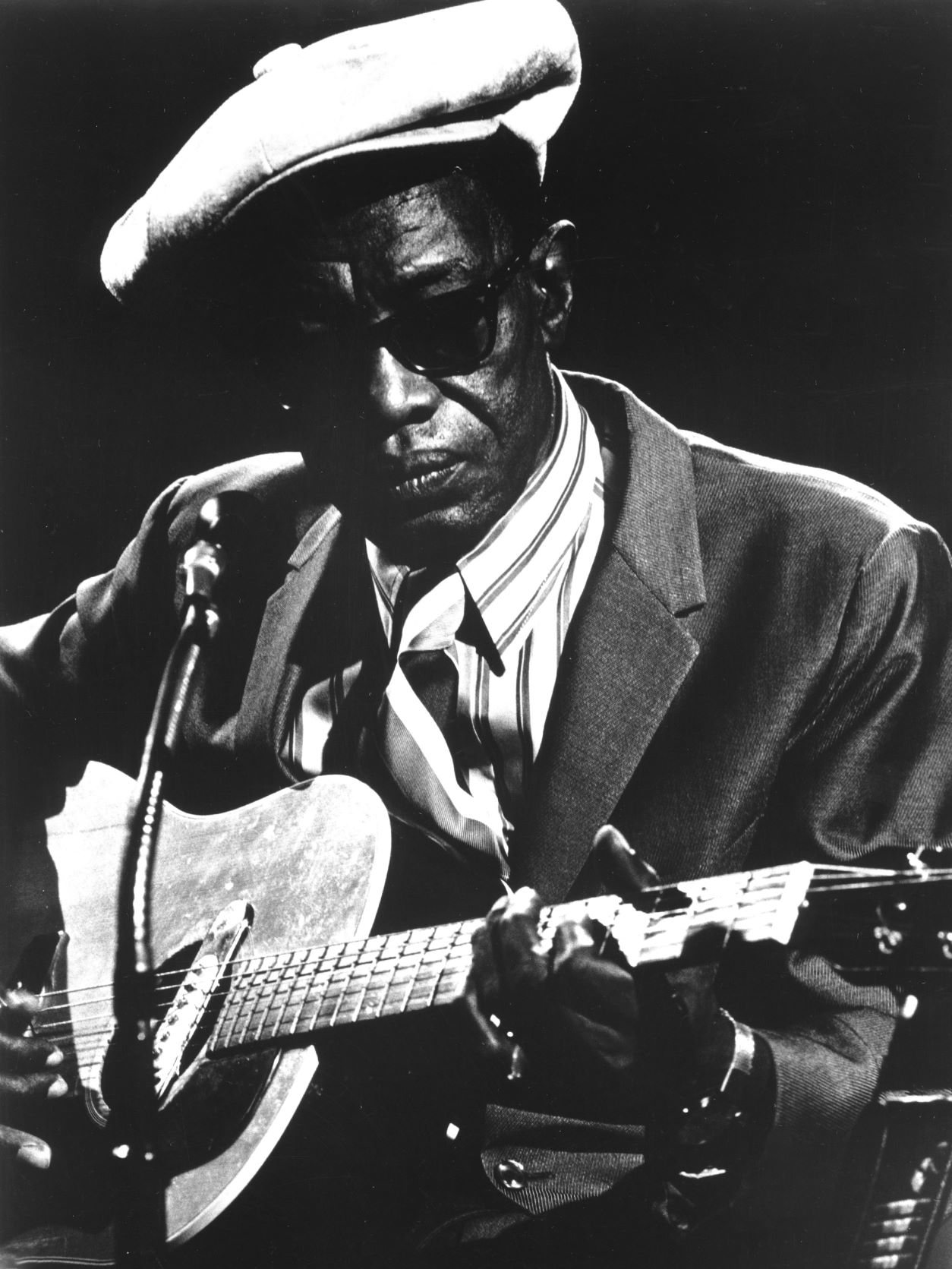
Browse the Lightnin’ Hopkins catalog here.
Jas Obrecht was a staff editor for Guitar Player, 1978-1998. The author of several books, he runs the Talking Guitar YouTube channel and online magazine at jasobrecht.substack.com.
